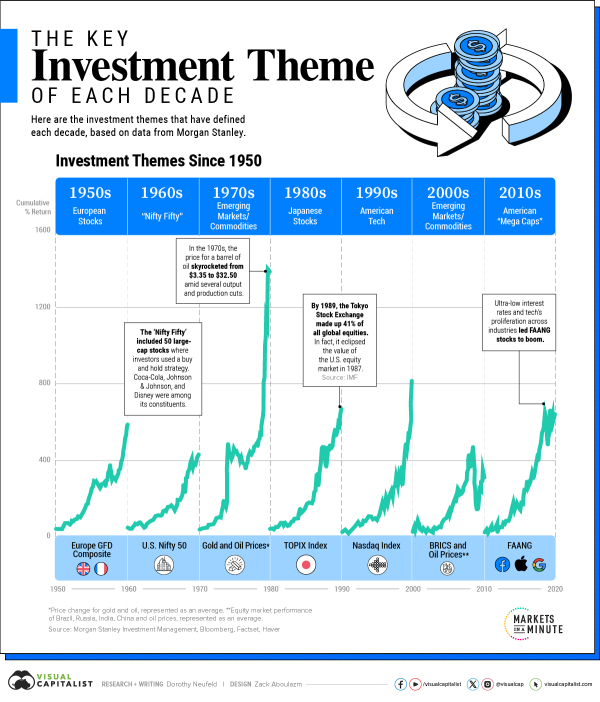I tend to focus on the themes that are impacting industry and the world … but when I started this blog back in 2008, I was much more focused on investment themes … why were markets doing what they were doing, both on the micro and the macro scale?
Based on data from Morgan Stanley, visualcapitalist just put together a chart that looks at the key investment themes from each decade since 1950. It's a great retrospective.
 via visualcapitalist
via visualcapitalist
In the 1950s, we saw a post-war boom in European stocks, followed by a shift into "blue chip stocks."
When I grew up, my grandparents advocated for blue chip stocks, and they held their investments until the day they died …
By the 1990s, when I started paying attention to markets, tech startups were taking over, and stocks weren't primarily held for years and years. Instead, they were getting calculated in weeks and months; people were trying to capitalize on a "quick trend."
Now, a quick trend can last under a day, and the average holding time for a stock (based on trading volume) is calculated in seconds.
Where will investments go in the '20s? We're currently seeing massive investment in tech, specifically the platforms that enable burgeoning tech, like NVIDIA. We also see a disconnect in U.S. equity markets, with 43% of global investment, but 26% of the world's economic output.
I think that, plus the growth in emerging markets, will result in a massive shift. Time will tell.
What do you think?

Leave a Reply